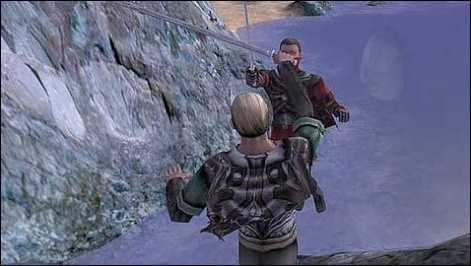There has been some quiet discussion on the subject of how indie game developers finance themselves recently.
A number of articles written in the past few weeks have discussed personal finance, such as this one, aiming to make others aware of how much being 'indie' costs.
It's a subject that isn't brought up often and for obvious reasons: no one wants to talk about where their money comes from, that's private information. But the issue that arises with this lack of open discussion is the realities of game development aren't well-known.
We don't usually hear about the thousands of pounds or the dreadfully long work hours that go into indie projects.
What do hear about instead? Success stories. Loads of them. How many indie game developers do you know due to their successes? Plenty, I'm sure. That seems to be the main reason for any indie studio to be talked about.
A small company has broken away from the larger industry and struck it out on their own. It's a dream for many, but the rarity of it coming true isn't generally understood.
It's with all this in mind that we decided to ask our Indie Mavens the following question to find out what they think on this subject:
"Should indie game developers talk more openly about where their money comes from?
Related to this, do you think the non-creative realities of being an indie game developer need to be discussed more?"
In general, it depends - if your 'indie carrier' is not 'carrying' you, then you have to work. If it is enough then you don't as much.
Your Cap! An indie developer without a released game is a person in transaction from 'working for someone' to 'being a boss'.
And after releasing one or even a few games that state can be reached and be maintained.
We definitely need to discuss the non-creative realities of financing your own games. As an industry we should be far more open about the development costs of the games we make.
A team of eight will burn through £120,000 incredibly quickly.Christian West
I've worked in triple-A studios where experienced developers have complained a Kickstarter campaign asking for £120,000 is just being greedy, when the reality is that team of eight will burn through that incredibly quickly.
We're all shielded from development budgets. There's very little chance someone new to the indie world without industry experience is going to be able to predict the costs of their project. They will need to split their dev time to make it work.
It's also no wonder gamers complain about games being "overpriced" at £1.99 when they don't realise that game probably cost £200,000 to make. When I've mentioned development costs to them in the past they are genuinely gobsmacked.

It took me six years of saving to make Motorsport Manager and it still wasn't enough really. I had to crunch to make it work. That's not a good place to be, especially when it's your life savings at risk.
Development costs are rising again and competition is fierce. Money is a huge part of being successful.
We should be analysing our failures and removing the romanticism of 'going indie'Leanne Bayley
I agree with Christian; we should talk about it. As much as we need to be shouting about our successes we should be analysing our failures and removing the romanticism of 'going indie'.
Yes, you can make an amazing game and release it independently and be successful. But you can also release 3, 4, 5 games and not turn enough cash to keep a roof over your head.
If we don't talk about how much it can cost, how long it can take, and how much work you need to do that's not game development we paint this altered reality of what being independent is.
It's freedom, but it's also responsibility and if you ignore all the other hats you have to wear you will probably fail.
Sometimes, the way it works is you make some non-creative, uninteresting, and overall crappy game that makes you profit. Then you use that profit to make the game of your dreams.
Sometimes that is a lie one tells themselves over and over, though, so it's a dangerous road to step on.
I'm still waiting for the "I got development money from here, here, and here, and my game still tanked" talk that I know exists, but no one has stepped forward to give it.
When I am done with my game, I will be definitely diving in about money and the like. I generally tell people privately about my circumstances, especially when people ask me if they should quit their jobs to go independent.
We exist in an industry where the outside people, like investors and government types, think we need to make nothing but hits to survive on a per studio basis, ignoring that we are more akin to making films, or paintings or albums, that just take longer to bring together.
F2P and IAP garnering shit tons of sales for some games making them huge amounts of profit has changed the world's view of games as service, rather than art.
If games make money, that's great. But we ignore that even big companies will ship something that was a passion project buffered by a huge guaranteed money maker in the winds to keep themselves sustainable - again like music, movies, books, etc.
Agree with the general sentiment here: it is good to talk about it.
Our first game Determinance was a commercial disaster. But it led to contract work that enabled us to build a decent base and then transition into working full-time on our own stuff.

I think people tend to view games industry success as very binary: you either make millions or nothing. In fact, you can have some low-end and mid-range success that provide some decent opportunities further down the road.
Personally, I'm torn on this. I really like reading about other developers being really candid about their ups and downs when it shows a more realistic picture of how difficult the market can be.
I think we do have an unhealthy focus on success stories.Richard Perrin
I think we do have an unhealthy focus on success stories painting a very misleading picture of how easy it to be the big indie success.
However, when it comes to talking about my own struggles, I just don't want to. Not because I particularly want to hide them, but more out of being a tiny company and wanting to focus on making a better future than dwelling on the mistakes.
I guess I want people to talk about failure, but I don't want to be the one to step forward and do it. Maybe there's a lot of others who feel the same and that's the problem.
Definitely indie devs need to talk about this stuff more. At Double Stallion, we are currently doing a contract project, and its allowing us to stay independent and build up a war chest for our next project. It's a cycle that many indies follow, and it's way more common than people think.
One of my pet peeves is that indies don't value their time enough. When you hear about a team of 7 working for 3 years on a game, that's a $2 million game, but most people don't measure how much time they have actually spent to build their game.
One of my pet peeves is that indies don't value their time enough.Dan Menard
Most of the indies that people hear about already have hits. When you have a hit, you are earning money while you are sleeping, because your game is selling consistently. If you haven't managed to develop a hit yet, selling your time is the next best thing, and will allow you to build up the funds and experience you need to make that hit.
Many people bet everything they have on one game and don't have a backup if that game never recoups. That's a huge risk! If you have a talented team, you can find paid contract work that will provide some stability and give you the space you need to be creative and not always be under the gun.
The downside is that it's not always the most glamorous work. If you are good though, you can afford to choose the contracts that benefit you and fit your team well.
I see nothing wrong in indie developers working a day job, or making side projects, in order to raise funds for their own projects, unless there is no other choice. At least, that’s what I’ve done during a significant part of my life as I’ve been programming since I was about 10 years old.
Yet, I must admit the headline from the link above reminded me that those of that period should be referred to as “hobbyists” than “indie”, because no financial results or making stuff for fun created the feeling of commitment I’ve got now. By that I mean that my own projects I was working and planning to work on didn't always came to life. But all this time I always was making or developing something.
As a game studio that makes cool things, we receive dozens of proposals a month from people who want us to make a game.Pavel Ahafonau
One day, some of the hobbies I had started to pay off, and became more or less like little businesses. These are what I now call “indie”, because it’s the only things I (and the team) do in our primary time – and obviously that’s where “indie” comes from: “independent.”
So, our main source of income is from past projects grown from “hobbies”. Little games (and apps, software development) projects are like a lottery, and even in case of a little success (covering game development maintenance costs) you probably won’t have enough money to sustain the team for a long time (for future projects), or at least remove the need to get cash somewhere else. Otherwise, you’ll have to take care of where to get money or to get a job, or to make side projects.
Yet, of course, side projects are a waste of time for a small indie team making their own products and for product companies. So, I wouldn’t recommend making them just for money. Partial royalty and partnership would make more sense there.
As a game studio that makes cool things, we receive dozens of proposals a month from people who want us to make a game, or design for them. But you mostly can just ignore such offers, as most of the inquiring people can’t afford even to pay the money we spend ourselves on our maintenance. None of these offers have yet to grow into a project, because people who want to focus on making a game often do not realize the costs.
Fortunately for us, we have enough to keep the team running now, but obviously not all game projects return the investment regardless how big or small it was, so the money from other projects and businesses are a big help.
We’re now in a phase of reaching a point that would allow us to move from little “indie” to bigger “indie,” and that won’t have a need to run to find money from other sources, like other non-game projects and businesses.
Our strategy, however, changed because of that, and to gain some extra money we released some small games in parallel with the creation of bigger games, and those have given us, for the most part, a one-time burst of income.
































